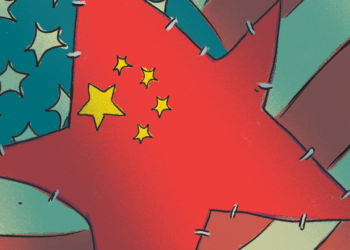Nearly 10 years ago, Pope Francis released a brutal diagnosis of climate change: It was a profound failure of human morality.
Read today, in the week of his death, the pamphlet feels both more distant and more urgent than ever. Its message of unity and healing with nature is worlds away from today’s discourse of clashing greed, national competition and climate-trashing populism in places like the U.S. and his homeland of Argentina.
Francis’ intent was revolutionary. “There can be no renewal of our relationship with nature without a renewal of humanity itself,” he wrote in Laudato Si’ (Praise Be to You).
But such a clear moral position is rarely heard today from climate leaders and champions — many of whom praised Francis this week as a patron saint of their cause.
The pope’s words arrived at a high point for climate morality. The Paris Agreement, which came six months after the encyclical, emerged from countries partially setting aside national interests in deference to a common good. Several years later, Greta Thunberg’s outrage that future generations would pay for the costs of fossil fuels cut through — for a while.
Now, Donald Trump’s administration is waging an all-out assault on climate work and a more Hobbesian, everyone-for-themselves mentality is taking hold worldwide. Those still waving the climate flag have largely restricted themselves to a rational, self-interested argument: Fighting climate change means economic growth.
Francis, who took his pope name from the nature-loving Saint Francis of Assisi, could barely contain his scorn for what he saw as the smallness of this approach.
He said that a narrow cult of technocracy and progress had come to dominate the landscape of human thought. The negative side effects — including the breakdown of the natural systems that sustain human society — were ignored because people had become blind to their links to the planet and its other lifeforms.
Climate change is an “ethical and spiritual” crisis, he said, requiring all people to “look for solutions not only in technology but in a change of humanity; otherwise we would be dealing merely with symptoms.”
Contrast this with the refrains of those carrying the mantle of Western climate politics, like former U.S. climate envoy John Kerry, who called climate change “the greatest economic opportunity the world has ever known.” Or consider U.K. Energy Secretary Ed Miliband’s belligerent exhortations for Britain to “take back control of our energy” through expanding renewable use.
Occasionally, as European Commission President Ursula von der Leyen did in a recent interview, leaders invoke their grandchildren. But even this deeply personal motivation is heard less frequently as the battle over climate change between these leaders and their right-wing, populist antagonists is fought on stultifying economic terms.
These ramparts are being built to defend against a right-wing assault. The Trump administration’s climate doctrine is described as American “energy dominance.”
The administration has its own ties to religion — setting up a theological argument over God’s creation and our relationship to it.
Trump’s vice president, JD Vance, who met the pope the day before he died, is a converted Catholic. The president also counts the American evangelical church among his most loyal supporters. Swaths of evangelicals embrace a view that wealth and resource accumulation is a sign of God’s blessing, pointing to a Bible passage in which God grants humankind dominion over the Earth.
To Francis, that was nonsense.
“We are not God,” he wrote in his encyclical. “The earth was here before us and it has been given to us.”
He argued that the passage “has encouraged the unbridled exploitation of nature by painting [humanity] as domineering and destructive by nature. This is not a correct interpretation of the Bible as understood by the Church.”
Instead, he pointed to humankind’s responsibility to “till and keep” the earth, with a heavy emphasis on “keep.”
An ascetic in his own life, Francis’ prescription was rolling back consumerism and its “whirlwind of needless buying and spending.” More than that, he said consumerism was a symptom of a wider spiritual emptiness that should be addressed. He urged Christians in particular to connect their religious beliefs to the wider world.
Perhaps it was because he was from Argentina, a country still struggling to shake off the legacy of colonialism. Or perhaps he was speaking to where the Catholic Church was most rapidly growing, in Africa and Asia, which include some of the countries most vulnerable to climate change wreckage.
Regardless of the reason, Francis was unyielding about the impenetrable injustice of climate change.
He urged people to “integrate questions of justice in debates on the environment, so as to hear both the cry of the earth and the cry of the poor.”
Francis continued campaigning for the environment throughout the rest of his career and life. And in the face of Trump’s withdrawal from the Paris Agreement in January, he was again preparing himself to step up his exhortations on climate change.
Earlier this year, with his health declining, he delivered a message to bishops in Brazil, the world’s largest Catholic country and where the COP30 U.N. climate talks will be hosted this year. He reiterated his decade-old view that the “ecological crisis is also a summons to profound interior conversion.”
It wasn’t the climate that needed saving, in Francis’ view, but humanity itself.
The post Pope Francis, the isolated climate moralist appeared first on Politico.




